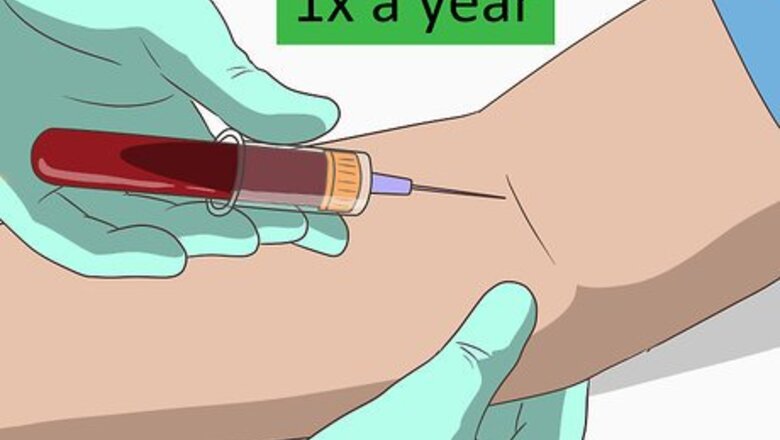
views
Getting Your Cholesterol Checked
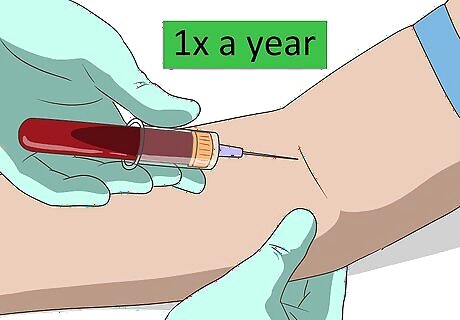
Schedule an annual cholesterol screening. If you don't have a history of heart disease, you'll need to have blood work done annually to determine if your cholesterol is in a normal range. Keep in mind that regular screenings are important as you age since cholesterol levels usually increase due to lifestyle changes and decreased activity levels as you get older. Your cholesterol level will appear as 3 numbers: your high-density lipoprotein (HDL), low-density lipoprotein (LDL), and triglycerides. If you do have a history of heart disease, your doctor will recommend that you get your cholesterol checked more frequently. To screen your cholesterol, you'll need to get a blood sample that's analyzed in a lab.
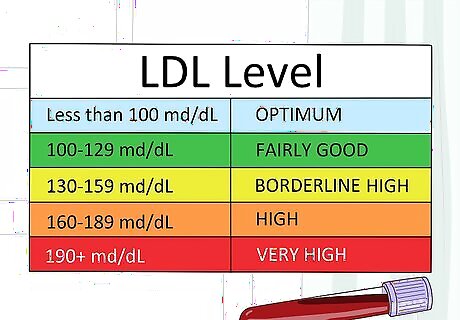
Check your low-density lipoprotein (LDL) level. You've probably heard LDL referred to as "bad" or "lousy" cholesterol because high levels can slowly block the arteries. Check the LDL level from your cholesterol screening and see where it falls on this range: Less than 100 md/dL: optimum 100 to 129 md/dL: fairly good 130 to 159 md/dL: borderline high 160 to 189 md/dL: high 190+ md/dL: very high
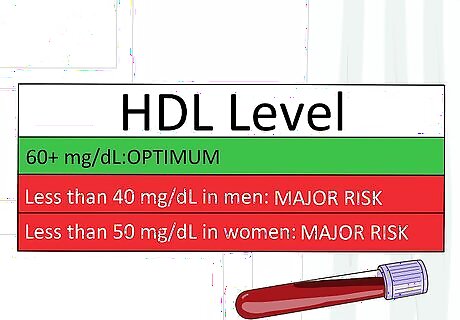
Learn your high-density lipoprotein (HDL) level. HDL is known as the good cholesterol because it helps maintain bone and joint function. It can also help reduce the buildup of LDL cholesterol in the arteries. Determine where your HDL level falls on this range: 60+ mg/dL: optimum Less than 40 mg/dL in men: major risk Less than 50 mg/dL in women: major risk
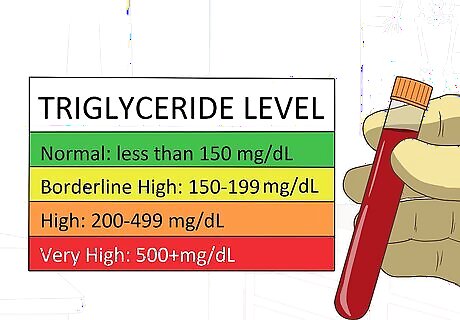
Check your triglycerides. Triglycerides are one of the most common types of fat in the body, comprised of both lipid fats and sugar, and they're found in your blood. If you have too many triglycerides in your blood, you're at an increased risk for heart disease, diabetes, and metabolic syndrome. If your triglyceride level is 150 mg/dL or higher, talk with your doctor about lowering it.
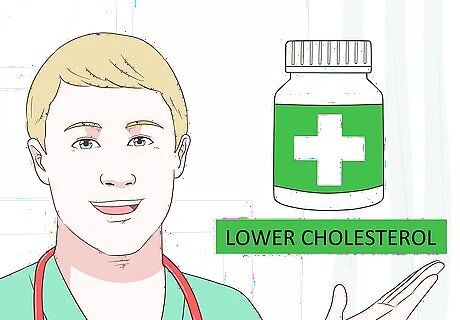
Talk with your doctor about taking cholesterol-lowering medication. If your doctor believes that your cholesterol levels are high and you have or are at risk for heart disease, the doctor may prescribe medication to quickly lower your cholesterol. Follow your doctor's treatment plan and get your levels checked again to determine that the medication is working. If you're going through menopause and your cholesterol is high, ask the doctor if medication will help you maintain normal cholesterol levels.
Eating a Healthy Diet
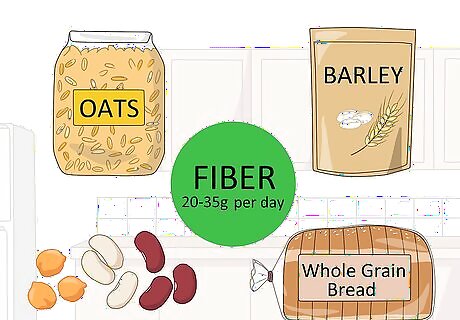
Consume 20 to 35 grams (1.2 oz) of fiber every day. Most people don't get the recommended amount of fiber in their diets. A diet rich in fiber, especially soluble fiber, is important for balancing HDL and LDL cholesterol. Eat whole grains and beans such as: Oats Bran Barley Bean (navy, kidney, lentils, garbanzos) Whole grain pasta and bread
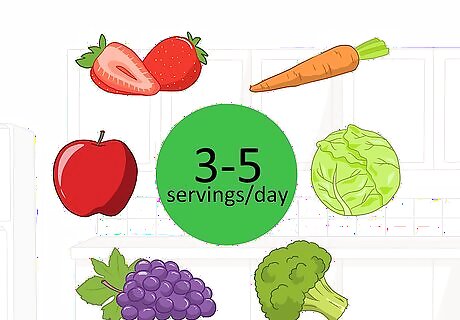
Include a variety of fruits and vegetables in your diet. Eat 3 to 5 servings of fruits and vegetables every day. Fresh produce is high in fiber which will lower LDL and help you maintain your cholesterol. Apples, grapes, strawberries, and citrus fruits are all good options to add to your diet. A serving is typically about half of a cup of fruits or vegetables.
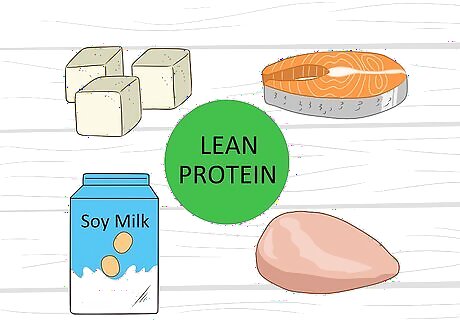
Eat lean proteins and seafood throughout the week. To get the healthy protein that won't raise your cholesterol, eat soybeans and soy products, as well as lean meats and fresh seafood. Good sources of lean protein include: Soy products such as tofu and soy milk Seafood such as salmon Skinless poultry
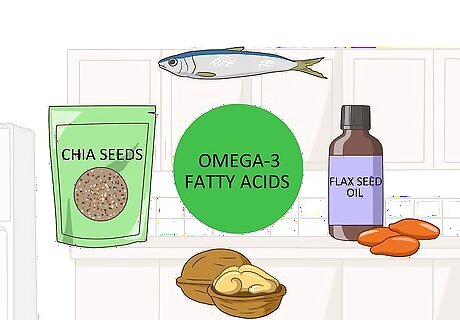
Add foods rich in omega-3 fatty acids. Omega-3 fatty acids can improve the balance of LDL and HDL cholesterol levels and reduce triglycerides, so try to eat them every day. Some foods that are high in omega-3s include: Fish Flax and flaxseed oil Chia seeds Walnuts
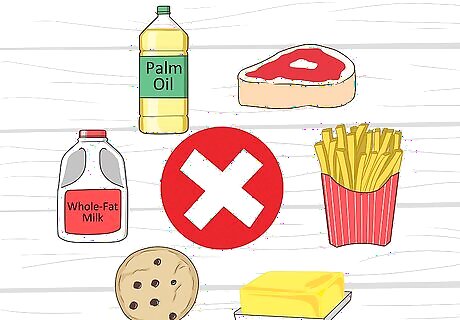
Avoid foods high in saturated or trans fats. These fats will increase your LDL levels which could raise your overall cholesterol. Foods that include trans fats will raise your triglycerides and reduce your HDL. To maintain balanced cholesterol levels, avoid eating: Red meat or fatty cuts of meat Fried foods Margarine and shortening Baked goods such as cakes, cookies, and pastries Whole-fat dairy and eggs Oils such as palm oil and cocoa butter
Cut back on how much sugar you're eating. If you eat more sugar than your body needs, it will turn to glucose in your blood. Your shunt that glucose into the liver, where it will turn into triglycerides and cholesterol. Nutrition and vegan food specialist Dee Dine instead suggests "replacing cane sugar and high-fructose corn syrup with maple syrup or honey as a healthier alternative."
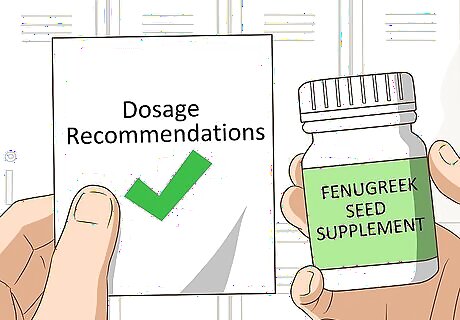
Ask your doctor about taking a supplement to maintain your cholesterol. Research shows that fenugreek seed supplements are effective at maintaining normal blood cholesterol and that aged garlic extracts lower cholesterol levels. If you do decide to add a supplement, follow your doctor's dosage recommendations. If you're concerned you're not getting enough soluble fiber, ask your doctor about adding a fiber supplement.
Improving Your Lifestyle
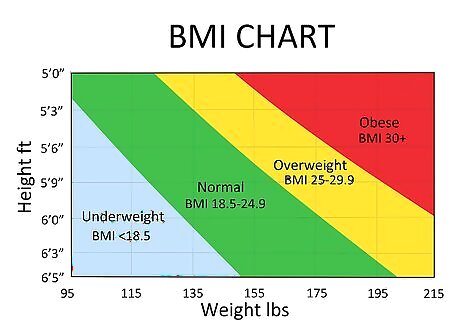
Maintain a healthy weight. Use your height and weight to determine your body mass index (BMI). Then use the number to determine if you're at a healthy weight for your height. Since people who are overweight or obese tend to have higher cholesterol levels, try to keep your weight in a healthy range. BMI ranges include: 18.5 to 24.9: normal 25 to 29.9: overweight 30+: obese

Try to get 30 minutes of exercise every day. If you're trying to lose weight or maintain normal cholesterol levels, you'll need to exercise regularly. Studies have shown that moderate exercise increases your HDL, reduces LDL, and can lower triglycerides. For moderate exercises, try: Walking Swimming Running Weight lifting Bike riding
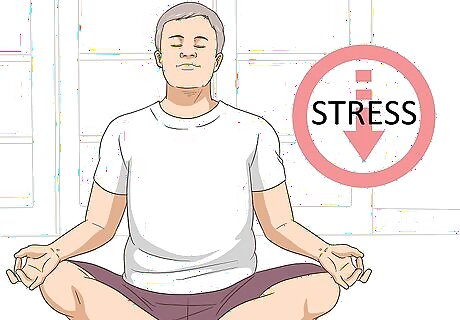
Practice stress relieving techniques. Research has shown that stress can directly raise cholesterol levels, so it's important to manage the stress in your life. To handle stress, use whatever technique works best for you. For example, take yoga classes, paint or draw, or practice deep breathing. It's a good idea to use a variety of stress relieving techniques so you can use them in different settings. For example, if you can start meditating during a stressful meeting, you could take a few deep breaths.
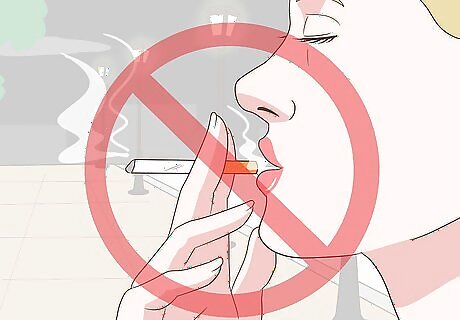
Quit smoking. Smoking cigarettes has been shown to lower good cholesterol levels (HDL), which causes bad cholesterol (LDL) to rise. Talk with your doctor about smoking cessation programs or find a support group in your area to help you quit. Once you quit smoking, your blood pressure will recover within 20 minutes. Your blood circulation will also improve within 3 months of quitting.

Limit alcoholic drinks to 1 or 2 a day. If you frequently drink more than 1 to 2 drinks a day, you'll increase your triglycerides. Moderate drinking can also raise your blood pressure and increase your risk for heart problems. Women of all ages and men over 65 should limit drinking to 1 drink a day. Men under 65 should limit drinking to 2 drinks a day.

















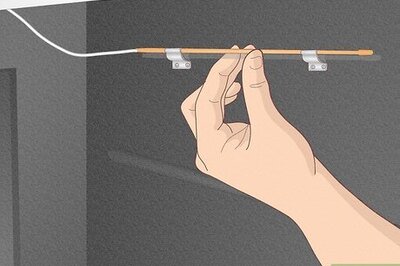


Comments
0 comment